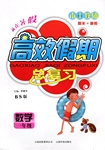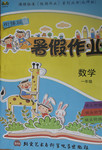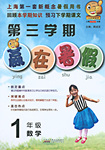题目内容
Be sure to ______ the light before you leave the office.
- A.turn on
- B.turn over
- C.turn down
- D.turn off

 本土教辅赢在暑假高效假期总复习云南科技出版社系列答案
本土教辅赢在暑假高效假期总复习云南科技出版社系列答案 暑假作业北京艺术与科学电子出版社系列答案
暑假作业北京艺术与科学电子出版社系列答案 第三学期赢在暑假系列答案
第三学期赢在暑假系列答案There’s a time to get angry, and it’s best for your child if you do. Let’s say your child hits a playmate with a toy hard enough to make the other child cry. How can you teach your child to feel sorry so he or she won’t do it again? Researchers say the best way for parents to react(反应)is to show their anger and to let the child know exactly why they are mad.
Many parents believe that it is best to control their feelings and to wait until they’re calm before scolding their children. But the mother or father who explains reasonably to a child , “Peter was crying because you hit him,” is not likely to attract much attention. Young children need to be scolded immediately, and strongly, before they’ll take criticism (批评)to heart.
When your young child does something wrong, scold him or her seriously at once. At the same time be sure to tell the child clearly what he or she has done wrong. An angry reaction without an immediate explanation does little good. Forbidding a child to play outside or not allowing him to watch TV as a punishment works well-but only when taken together with an explanation. Make sure your child understands that although his or her wrongdoing has made you angry, you still love him or her. Use simple, direct words such as, “You hurt peter. How would you feel if he hit you? You must never, never hurt people.” If your voice expresses strong feeling clearly, your message will carry enough weight.
【小题1】According to researchers, how should parents react when their child did something wrong?
| A.Ask the child not to do it again any time. |
| B.Show the child how angry they are and tell him why. |
| C.Teach the child why and how to say sorry to others. |
| D.Let the child know you still love hime or her. |
| A.Calm themselves down before scolding him. |
| B.Hide their feelings when talking to him. |
| C.Explain immediately why he was wrong. |
| D.Speak strongly and angrily to him. |
| A.Different Ways to Deal with Children’s Wrongdoings |
| B.Differences among Parents in Dealing with Children |
| C.Best Ways to Stop Children’s Wrongdoings |
| D.Research on Preventing Children from Hurting Others |
Pets are popular. They’re good listeners, they encourage us to exercise, and they’re always on our side when we argue with others. They can bring people comfort and pleasure.
But it is important to keep in mind that pets can carry diseases that can make you sick. Washing your hands often — especially after you touch, feed, or clean up a pet — is the best way to keep yourself healthy and prevent the spread of disease. Be sure to clean your fingernails(指甲)carefully every time you wash.
You also can protect your health by wearing gloves while cleaning animal cages or cat litter boxes. Avoid washing your pet in the bathtub (浴缸), but if you do, always disinfect (消毒) the tub immediately afterward.
Be sure to bring your pet to the hospital for examinations every two weeks or month and whenever your pet is sick or injured.
You can do a few other things to keep yourself and your pet healthy. Only give your pet food that has been planned ahead for them. It’s not a good idea to share your food with your pet. Human food (like chocolate) can make animals sick. Never feed your pet raw meat because it can carry germs (细菌) that cause serious illness.
And funny as it can be to see your dog or cat drinking from the toilet, don’t let pets do this. It’s bad for your pet’s health! Give them clean, fresh water to drink at all times.
Never give milk to cats. The only milk an animal should drink is from its mother. Cow’s milk is not for pets, especially for cats, as it makes them sick.
Finally, some animals aren’t pets. Don’t take in a wild or abandoned (被抛弃的) animal as a pet because it may have diseases that could make you or your family sick. Instead, turn to an animal rescue group that is trained in helping sick or abandoned animals.
【小题1】The first paragraph mainly tells us that pets can ______.
| A.be great friends | B.bring us pleasure |
| C.help us keep healthy | D.do harm to us |
| A.washing your fingernails after touching your pet |
| B.wearing gloves when cleaning your pet’s cage |
| C.washing your pet in the bathtub |
| D.bringing your pet for examinations regularly |
| A.the cow | B.the mother cat |
| C.cow’s milk | D.mother cat’s milk |
| A.Sharing your chocolate with your dog. |
| B.Letting your dog drink from the toilet. |
| C.Feeding your little cat with raw meat. |
| D.Giving your cat cooked fish. |
| A.call an animal rescue group |
| B.bring it back to your home |
| C.give it first aid(急救)in time |
| D.help to find its owner |
Read the following text and choose the most suitable heading from A-F for each paragraph. There is one extra heading which you do not need.
| A. Be well-organized. B. Close with a Q & A. C. Don’t be contradictory . D. Bring it to a specific end. E. Speak slowly and pause. F. Drop unnecessary words. |
【小题1】When it comes to understanding new information, the human brain needs a little time. First, we hear the words; then, we compare the new information to what we already know. If the two are different, we need to pause and think. But a breathless speaker never stops to let us think about what he or she is saying and risks confusing us. Slow it.
【小题2】Sometimes we all start a sentence one way and then switch directions, which is very difficult to follow. When you confuse your listeners with opposing information, you leave the audience wondering what part of the information is right and what part they should remember. Instead of relying and keeping correcting yourself, work to get the facts clear and straight.
【小题3】Jumping from point to point as it comes to your mind puts the onus (责任)on your listeners to make up for your lack of organization. And it’s confusing for them to listen, reorganize, and figure out what you’re saying all at once. But going smoothly from one point to the next helps them understand information more easily. You can arrange things from beginning to end, small to large, top to bottom or by some other order. Just be sure to organize.
【小题4】Repeated use of um, ah, like, you know and some other useless noises can drive an audience crazy. It makes the speaker sound uncertain and unprepared, and it can leave listeners so annoyed that they can’t pay attention. Recently I attended a speech that was marked by so many ums that audience members were rolling their eyes. Was anybody grasping the intended message? Um, probably not.
【小题5】Many speakers finish up their speeches with question-and-answer (Q & A) sessions, but some let the Q & A go on without a clear end. The audience is often left confused about whether the meeting is over and when they can get up and leave. Do your listeners a favour by setting a time limit on questions, and close your speech with a specific signal—even if it’s something simple like, “If you have any more questions, you know where to reach me.”
Or even more to the point, conclude your speech with “Thanks for your time. ”
